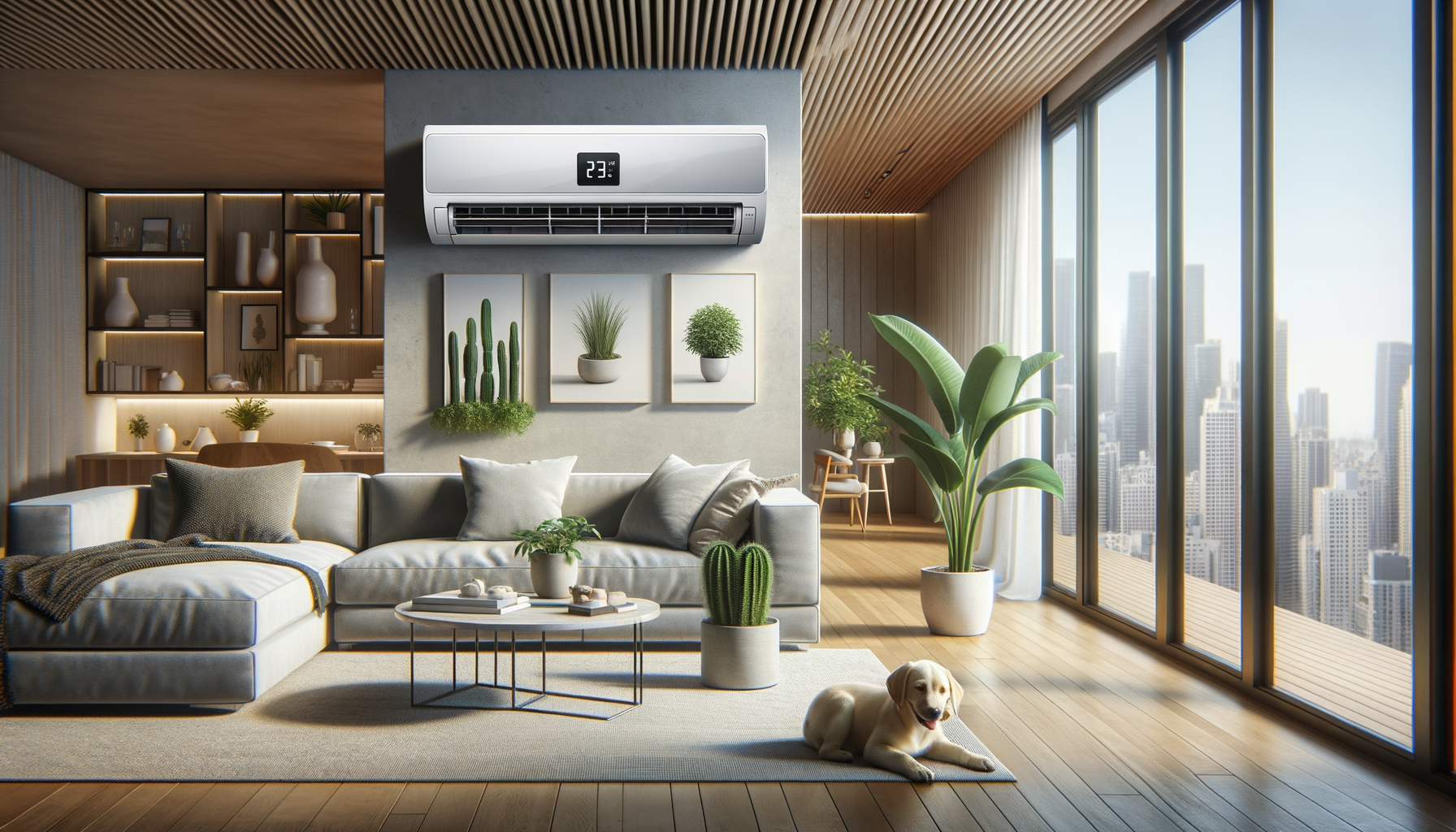Introduction to Ductless Air Conditioning
Ductless air conditioning systems, often referred to as mini-splits, are becoming increasingly popular in modern homes and offices. Unlike traditional HVAC systems that require a network of ducts to distribute air throughout a building, ductless systems provide a flexible and efficient alternative. This article will explore the various benefits and applications of ductless air conditioning, making it clear why these systems are gaining traction in the market.
How Ductless Air Conditioning Works
A ductless air conditioning system consists of two main components: an outdoor compressor and an indoor air-handling unit. These components are connected by a conduit, which houses the power cable, refrigerant tubing, suction tubing, and a condensate drain. The absence of ducts means that the system can be installed with minimal disruption to existing structures, making it an ideal choice for older buildings or homes without pre-existing ductwork.
One of the key advantages of ductless systems is their ability to provide targeted heating and cooling. Each indoor unit is typically associated with a specific zone or area within a building, allowing for precise control of the temperature in individual rooms. This zoned approach not only enhances comfort but also contributes to energy savings, as it reduces the need to heat or cool unoccupied spaces.
Energy Efficiency and Cost Savings
Ductless air conditioning systems are renowned for their energy efficiency. Traditional ducted systems can lose a significant amount of energy through leaks in the ductwork, sometimes as much as 30%. In contrast, ductless systems eliminate this issue entirely, leading to more efficient operation and lower energy bills.
Moreover, many ductless systems are equipped with inverter technology, which allows the compressor to adjust its speed based on the cooling demand. This capability not only enhances energy efficiency but also extends the lifespan of the system by reducing wear and tear. Homeowners may also benefit from potential rebates and incentives offered by local utility companies for installing energy-efficient systems.
Installation Flexibility and Design
One of the standout features of ductless air conditioning systems is their installation flexibility. The indoor units can be mounted in various locations, including on walls, ceilings, or even floors, depending on the specific needs of the space. This flexibility makes ductless systems an excellent choice for a wide range of applications, from single-room additions to entire home renovations.
In addition to their functional benefits, ductless systems offer a sleek and modern design that can complement any interior decor. The unobtrusive nature of the indoor units means that they can blend seamlessly into the aesthetics of a room, providing both comfort and style.
Applications and Suitability
Ductless air conditioning systems are suitable for a variety of applications. They are particularly beneficial in situations where traditional ducted systems are impractical or too costly to install. For example, ductless systems are ideal for older homes without existing ductwork, as well as for new home additions or converted spaces such as garages or basements.
These systems are also well-suited for multi-family housing units and commercial buildings where individual climate control is desired in different areas. The ability to control the temperature in specific zones not only enhances comfort for occupants but also contributes to overall energy savings.
Furthermore, ductless systems can be an excellent solution for addressing specific heating and cooling challenges, such as hot or cold spots within a building. By providing targeted climate control, ductless systems offer a practical and efficient way to maintain a comfortable indoor environment.
Conclusion: Is Ductless Air Conditioning Right for You?
In conclusion, ductless air conditioning systems offer a range of benefits that make them an attractive option for many homeowners and businesses. Their energy efficiency, installation flexibility, and ability to provide targeted climate control make them a practical choice for a variety of applications. If you’re considering upgrading your existing HVAC system or are in need of a solution for a space without ductwork, ductless air conditioning may be the ideal choice. As with any major home improvement decision, it’s important to consult with a professional to determine the best system for your specific needs and circumstances.




Leave a Reply